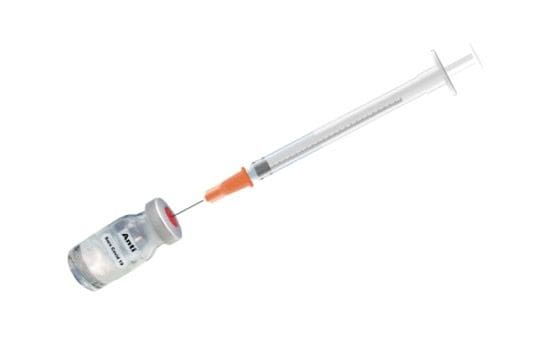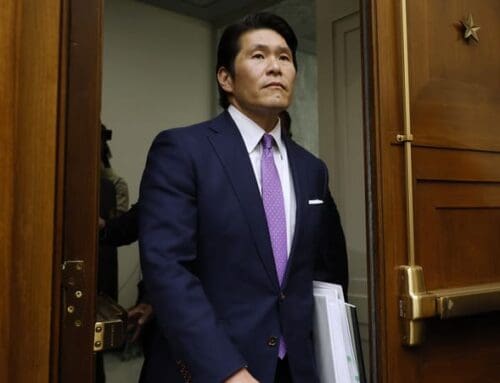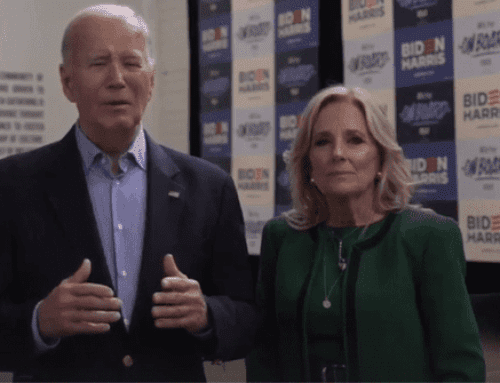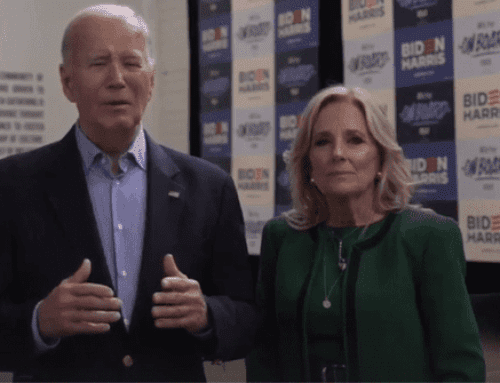

An economist’s failed attack on the pharmaceutical patent system
An academic’s effort to blame the patent system for the unequal distribution of Covid-19 vaccines around the world falls flat as he first constructs a straw man and then waxes utopian in burning it down.
Can society preserve pharmaceutical innovation while limiting the pricing power of patent owners and maximising social welfare?
In particular, how could we ensure that all countries, however poor, get equitable and affordable access to products such as Covid-19 vaccines, so they can meet ideal vaccine targets as determined by global health bureaucrats?
It would be nice if we could solve this problem, but a recent paper on the subject runs into serious trouble trying to work out a solution that would reward innovators while achieving optimal outcomes for society.
The author of the paper, Alexis Habiyaremye, a government-funded industrial development economist at the University of Johannesburg, wrote a lay summary for Daily Maverick, tendentiously titled, Patent protection, access to Covid vaccines and the right to healthcare versus corporate profits.
Of course, anyone who casts the question as a struggle between some social benefit and ‘corporate profits’ can reasonably be suspected of socialist tendencies.
This suspicion is soon confirmed when our researcher writes: ‘The choice of developed countries to make a fortune out of Covid-19 vaccines and their refusal to share related technologies with developing countries is a manifestation of a divide in social identity, rather than a supposed need to stimulate innovation.’
Packing so much wrong into one paragraph is something only an academic economist could do.
‘Developed countries’ never ‘chose’ to ‘make a fortune’ out of Covid-19 vaccines. That some individual companies in developed countries did make a fortune is a manifestation not of a ‘divide in social identity’, but of how market capitalism functions to produce goods and services that are wanted or needed.
Their ‘refusal to share’ technologies is merely a disinclination to violate the property rights of those who had created those technologies, and might stop making those technologies if they were simply expropriated.
It had nothing to do with ‘social identity’.
Race warfare
He promptly brings up an incident in which French scientists in a television appearance discussed including Africa in clinical trials for vaccines, because there are unique elements to public health circumstances in Africa. (Google translated article.)
Although they explicitly said this would not obviate the need for parallel studies in ‘Europe and Australia’, the head of the World Health Organisation, Tedros Adhanom Ghebreyesus, immediately declared the idea to be grossly racist.
The term ‘guinea pigs’ was bandied about, despite the fact that participation in clinical trials is only ever voluntary.
Why Africa should not host vaccine trials while they are conducted only on non-African subjects strikes me as very much against the ‘spirit of solidarity’. In the end, African countries had to fund their own local trials, anyway.
For Habiyaremye, it’s all about ‘global solidarity’ and race warfare, though.
Solidarity
Solidarity is an emergent phenomenon when people voluntarily act in concert to support each other. It cannot be a governing policy, except in authoritarian socialist states, and cannot be imposed on people from above, except by deadly force.
‘The subsequent development and hoarding of vaccines by rich countries in the West brought into focus intensive debates on the trade-off between patent protection and the right of populations around the world to have access to life-saving vaccines’, wrote Habiyaremye.
The right of anyone to have access to anything that someone else developed, at a cost either to themselves or to their country’s taxpayers, is questionable.
Positive ‘rights’, such as the right to free housing (as opposed to a right to access to housing) are in principle problematic, because someone, somewhere, is required to pay to have that housing built. Someone, somewhere, is working – involuntarily – to give effect to this right. Involuntary work is slavery, and involuntary payment is theft.
Here we have a situation in which private companies, with the support of taxpayers in their own countries, produced goods that are universally needed. But by what right do those who did not produce them, and did not pay for them, claim to be entitled to those goods?
Because it’s a question of life or death? Sure. Having emergency helicopters, or access to MRI machines, or sufficient human blood supplies, are also questions of life or death. Should those who produce them, or have them, be required to donate them to those who don’t?
Food is also a question of life or death. By what right can anyone lay claim to the production of food by a private individual or company in a foreign country, except by offering to trade fair value for it? If the recipient doesn’t pay for it, who does?
Private profits
‘The sheer magnitude of profits generated by patented Covid-19 vaccines has also raised significant concerns about the acceptable appropriation of innovation benefits, especially if one considers that many innovations in the industry are based on initial discoveries funded through public investments’, Habiyaremye writes.
One might consider the public investment, indeed, if one were, say, a taxpayer in a country that made those public investments. If one is not, one has no right to whine about it at all. If one is, then one might also want to consider whether the desired products would have been produced at all if it hadn’t been for the public incentives.
Vaccines are, historically, notoriously poor earners. Wrote The Economist in 2010: ‘For decades vaccines were a neglected corner of the drugs business, with old technology, little investment and abysmal profit margins. Many firms sold their vaccine divisions to concentrate on more profitable drugs. This troubled public-health experts because vaccines are a highly effective way of dealing with diseases.’
Now, people like Habiyaremye look at the profits of only two of the successful Covid-19 vaccine makers, ignoring entirely the losses of the 100-odd companies who attempted to make a Covid-19 vaccine but failed, and criticise them for being pretty decent.
That is called ‘cherry-picking’, in the academic circles Habiyaremye inhabits, and invalidates everything else he says about the supposedly excessive profits of pharmaceutical companies.
He calls the profits of pharmaceutical companies ‘considerably high’, but that is also cherry-picking.
While the Russell 1000 benchmark index grew 25,02% in the three years to 21 October 2022 (including the entire pandemic era), pharmaceutical stocks as represented by the iShares U.S. Pharmaceuticals ETF grew by a virtually indistinguishable 25,12%.
The idea that pharmaceutical companies have made excessive profits thanks to patent protection on Covid-19 vaccines just isn’t supported by the facts.
He correctly notes that the global distribution of vaccines was not ‘equitable’. They went to those who paid for them, and ordered them early, and not to those who needed them, couldn’t pay for them, or didn’t bother to order them on time (like South Africa).
To remedy this problem would take totalitarian force and magic thinking, and we’ll see that ultimately, Habiyaremye’s own conclusions demonstrate that.
Surrendering patents
He criticises the refusal of some vaccine makers to surrender their patents, or licence them at bargain prices so developing countries, too, could manufacture their products.
That’s a moot point. South Africa established several joint ventures, partly paid for by the taxpayer, just to fill vaccine bottles.
An Aspen Pharmaceuticals production line opened with great fanfare by president Ramaphosa himself was going to fill J&J bottles, but didn’t get a single order.
Biovac, a company established in 2003 in partnership with the government to establish a local vaccine production capability, has not produced a single vaccine in the two decades of its existence. It made a deal to fill Pfizer and Moderna vials in mid-2021, but hasn’t filled a single one.
A vaccine production hub established with the help of the government and the World Health Organisation in mid-2021 has likewise not produced a single thing, although it may bring an mRNA-based Covid-19 vaccine to trial next year some time.
Billions have been sunk into these ventures, instead of having been spent on buying vaccines from companies that are capable of making them, in volume, and in good time.
South Africa is a relatively advanced country, with a deep capital base, good universities, and reasonable skills, and yet it is incapable of producing vaccines.
That’s fine, of course. I’m incapable of making cars, but I have one. I’m incapable of building a house, and can’t afford to buy one, but I live in one, nonetheless. I can’t make microprocessors, but I have several of them.
My secret isn’t that I steal them, or demand that other people give them to me for free, but that I don’t object to paying fair market rates for them.
There is absolutely no benefit to making things yourself when other people can do a better job. This is the basic principle of the division of labour under market capitalism.
Patent abuse
Habiyaremye proposes messing with the patent system, not to abolish it, but to shorten the duration of patents among other adjustments.
‘In a recent study’, he writes, ‘I use arguments from social identity theory to show that within a social group that values a strong shared identity in the face of a common threat, the inclusion of non-economic considerations in the making of decisions about the procurement of life-saving pharmaceuticals yields better social welfare than relying on the exclusive use of patent protection.’
He proceeds, in that paper, to analyse the role of patents in innovation. He doesn’t reject them wholesale, because, frankly, the arguments in favour of patent rights are pretty strong.
I’m entirely willing to meet him halfway on the subject of patent abuse. As with anything that is administered by the state, there is plenty of scope for corruption and abuse.
The ability of government bureaucrats to assess patents properly, on whether they are indeed innovative and non-obvious, leaves a great deal to be desired. The potential for lawyers to enrich themselves and their clients by pulling the wool over the eyes of state employees, from patent examiners to judges, is also not in dispute.
Habiyaremye’s proposals for patent reform do not address these issues, however.
Social planner
Instead, he imagines an ‘intelligent social planner (sometimes referred to as the benevolent dictator)’ who would ‘be in a position to mobilise all public resources to protect the health of his/her citizens and maximise their social welfare (and public health)’.
This sounds dandy. Just like it would be great if wizards could zap all the Covid-19 bugs with wands. The USSR was run entirely by ‘benevolent social planners’. It was the ultimate technocracy. See how well that worked out.
Habiyaremye then sketches out what this benevolent social planner would do. He immediately becomes mired in complex formulae that are incomprehensible to most.
They do make it look like he’s doing seriously sciencey things, though. Integral signs and natural exponential functions and lots of different Greek letters really turn the heads of people who don’t have university-level maths in their mental repertoire.
Sensible economists consider such calculations useless, however, given that the value of the component variables is usually impossible to determine without a degree of omniscience that no single person or organisation possesses.
He writes: ‘[T]he benevolent social planner could maximise social welfare by allowing free competition and then, by a process of redistribution, reward the innovators by granting them the equivalent of the discounted monopoly profits (levied as taxes on the society or taken generously from his own wealth) or simply having the inventor’s names covered with fame and glory e.g., giving them national awards and distinguished public recognitions.’
If the innovators are rewarded the same as they would be under the present system, it isn’t at all clear to me why buying the vaccines from the national fiscus would lead to different outcomes.
It also isn’t clear to me why the benevolent social planner would have ‘his own wealth’ with which to pay pharmaceutical companies.
Either way, however, calculating the appropriate profits, as explained earlier, is ultimately impossible.
But noddy badges? Why didn’t I think of that? Let’s pay Pfizer and Moderna shareholders with participation certificates! And if they refuse, we cancel them for their lack of ‘global solidarity’, or something.
Benevolent and wise!
‘An ethical issue can arise around the justification of levying taxes on the society if the innovation benefits only a small number or is not essential to the society’ , Habiyaremye writes. ‘We leave out such cases from our analysis and limit our discussion on innovations that are essential to the entire society, such as pharmaceuticals, and we leave to the benevolent social planner the wisdom of determining which innovations are essential to the society.’
He’s digging himself a deep hole here, by constructing a social planner that is not only benevolent (in whose eyes?), but also wise. What people want is entirely subjective. There simply is no way to determine what is and is not essential.
South Africa’s government presumed to decide which jobs are and are not essential, forgetting that every job is essential and a matter of life or death to the person who has it.
No planner can presume to know what individuals want, need, or prioritise.
‘The practical difficulties of determining the compensation fee can be assumed away if we suppose that our benevolent social planner has perfect foresight and can negotiate persuasively with the inventors to determine an appropriate reward,’ Habiyaremye writes.
Indeed. If we can just assume any difficulties away, we’d live in Utopia.
Big ‘if’
‘If such were the case, it would have the advantage of removing the monopolist disincentive to innovate.’
That ‘if’ is mighty big.
‘Indeed, the inventor, no longer focused on the market exploitation of his invention, will in this case maximise his returns by immediately engaging in research for the next rewards and so, specialise in important developing innovations.’
But how would the inventor know which innovations are important, and where time and resources should be directed towards first?
Without market prices, they could only act upon the command of the benevolent dictator. That is exactly what producers did in the Soviet Union, making shiny nuclear missiles and space rockets, but terrible clothes, food and housing.
To solve the problems Habiyaremye has with the patent system, he first has to invent a bogeyman that doesn’t exist (greedy pharmaceutical companies), and then, in burning that straw man, is forced to assume an increasingly idealised and perfect world, in which all-knowing benevolent and wise dictators would uphold global solidarity and maximise social welfare.
I don’t know what world he lives in, but it isn’t the real world.
PS. This article is not about whether vaccines work or were a communist plot. It is purely about the economics of patent protection for what are considered to be essential goods. I still volunteer my time to read and respond to comments. Please respect that and keep comments on topic.
[Image: blende12 / 4789 images for Pixabay]








